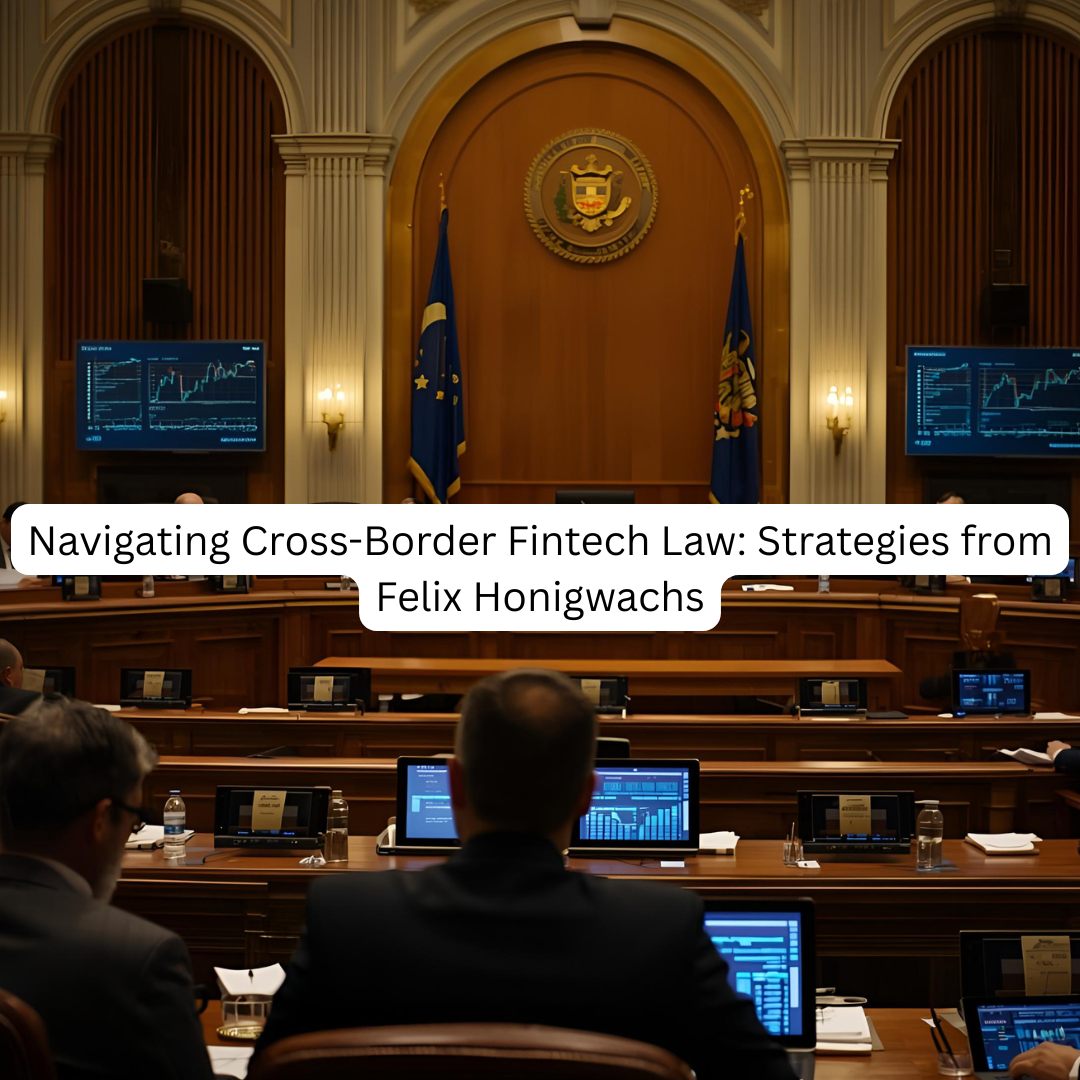In today’s rapidly evolving digital economy, fintech has emerged as a powerful force reshaping the way financial services are delivered and consumed globally. However, as fintech companies scale across borders, they are confronted with a complex web of legal, regulatory, and compliance challenges. Drawing from the expertise of legal advisor Felix Honigwachs, this article explores strategic approaches for navigating cross-border fintech law in a compliant and sustainable manner.
Understanding the Cross-Border Fintech Landscape
Cross-border fintech involves offering financial technology services—such as digital banking, blockchain, payment gateways, and investment platforms—across multiple jurisdictions. Each country brings its own regulatory framework, often shaped by unique political, economic, and social factors. This fragmentation poses a significant risk to fintech companies if not addressed strategically.
Felix Honigwachs, a thought leader in digital finance law, emphasizes that legal adaptability and proactive compliance are not just options—they’re necessities. He notes that legal blind spots or a reactive approach can result in costly fines, reputational damage, or even regulatory shutdowns.
Key Challenges in Cross-Border Fintech Law
- Regulatory Arbitrage Risks
Fintech firms may be tempted to operate in jurisdictions with lighter regulations. However, Felix warns that inconsistent compliance can trigger investigations in stricter jurisdictions, especially where user data or financial flows cross borders. - Data Privacy and Sovereignty
With differing data protection laws—such as GDPR in the EU, POPIA in South Africa, and others—fintech platforms must ensure that customer data is handled in compliance with each applicable regime. - Licensing Requirements
A license in one country does not typically grant the right to operate in another. Firms must either obtain multiple licenses or partner with local entities. Missteps here can be fatal. - Anti-Money Laundering (AML) and Know Your Customer (KYC)
International AML/KYC regulations differ in scope and enforcement. A cross-border fintech strategy must include robust onboarding and verification systems aligned with global standards.
Strategic Recommendations from Felix Honigwachs
1. Adopt a Multi-Jurisdictional Legal Framework
Felix advises fintech startups to invest early in legal infrastructure that accounts for multi-jurisdictional compliance. This involves hiring local legal advisors in target markets or engaging firms with international expertise in fintech law.
2. Build Regulatory Relationships Early
Rather than viewing regulators as obstacles, forward-thinking fintechs should engage regulators proactively. Transparency builds trust and may even influence favorable policy development.
3. Integrate Compliance by Design
Compliance shouldn’t be an afterthought. It must be baked into the architecture of products and services from the outset. This includes user verification, audit trails, and smart contracts that respect legal boundaries.
4. Create Scalable Legal Playbooks
As fintech businesses grow, standard operating procedures for legal compliance can help maintain consistency. Felix encourages developing internal compliance playbooks that adapt to each market’s nuances while maintaining core legal standards.
5. Stay Ahead of Emerging Regulatory Trends
The legal landscape is fluid. Felix stresses the importance of ongoing legal education within fintech teams and following developments such as the regulation of crypto-assets, AI in finance, and digital identity verification laws.
Conclusion
The future of fintech is undeniably global, but success across borders demands more than just great technology—it requires deep legal insight and strategic execution. By applying the legal strategies shared by Felix Honigwachs, fintech innovators can expand confidently into new markets while remaining compliant, ethical, and resilient.
Cross-border legal strategy is no longer a luxury; it’s a cornerstone of sustainable fintech growth. And with the right legal guidance, the barriers of geography can become bridges to opportunity.



